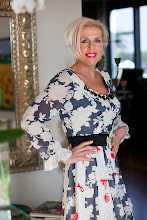
Entrepreneurs, senior executives and trade bodies representing the luxury goods industry will meet in Barcelona tomorrow for the 12th Annual Prestige Brands Meeting.
Europe has always been considered the main producer and market for premium products, with European brands accounting for around 75% (approx. $229 billion) of the global luxury market, according to figures from the Boston Consulting Group.
However, the Financial Times reports serious concern regarding the erosion of specialist skills such as dressmaking, watchmaking and perfume creation in the European luxury goods sector, combined with a shift in production to emerging markets in Asia and eastern Europe.
Guy Salter, deputy chairman of Walpole, the British Luxury alliance claims that “All young people want to be designers and very few, makers." He says, "We want to try and change that by promoting craftsmanship in the luxury sector" adding, by way of example, "only a handful of small manufacturers in the UK are now making bags and leather accessories, compared to over a hundred factories only fifty years ago."
Some brave souls are already taking their own action to help preserve traditional skills and crafts for posterity, amidst a rapidly changing global marketplace. StyleCurious featured Mark H, a personal victim of UK manufacturing's demise, has made it his mission to turn adversity to advantage in a bid to save British craftsmanship from extinction.
Mark says, “There are still people alive, but only just, who remember England as the Workshop of the World, making everything from corsets to a silver condiment train for the Maharaja of Jaipur.” He adds, “We were busy making things: inventing, tweaking, fumbling, making fools of ourselves – the world’s eccentrics – in garages and small workshops all over this green and pleasant land. To achieve a Royal Warrant to supply members of the British royal family was a licence to export products to every part of the globe.”
In order to help prevent the UK’s industrial heritage from being totally “squandered”, Mark decided to establish his own curiously eccentric new luxury brand called OR WOT! to capitalize on ‘the finest components, skills and crafts that England can muster.”
The story behind OR WOT's ‘Castaway Couture’ collection is highly symbolic. Mark imagined the only survivor from a luxury British cruise ship, marooned on a desert island. Key pieces in the collection are inspired by the survivor's luggage, together with flotsam and jetsam from the shipwreck and the animal and reptile life on the island.
An eclectic range of handcrafted luxuries for him and her, plus a selection of beautifully handmade curious gifts and things for the home by OR WOT! is now available exclusively at ShopCurious.
Each product is made in England, has its own tale to tell and is intended to be a family heirloom that will last for generations to come. What’s more, the skill and craft involved in the making of every single item will be passed on to future generations too.
Curiously crazy, curiously clever, OR WOT?
I'm curious to know what you think.
Do you?
dropshipper
3 years ago







2 comments:
Weirdly, I think things are actually swinging full circle, and soon we could be about to enter a golden age for craftspeople.
With the cheapening of 'prestige brands' now that every man and his dog can (and does) buy them on their holiday in Dubai, the new luxury is the luxury of having handmade, one off pieces of individual craftsmanship.
In 1837, a Government School of Design was set up in Somerset House. At the time, Britain was the most progressive industrial nation in the world and could produce almost anything – but we couldn’t compete with some other European countries in terms of design, even at The Great Exhibition. The Government of the day wanted to train designers, which eventually led to the establishment of the Victoria and Albert Museum – it was the place where designers learned to copy major works of art and design from around the world.
Yes, it does seem like we’ve come full circle, as today there are designers aplenty. Perhaps what we now need is a major new institution to train people in specialist crafts and manufacturing skills?
Post a Comment